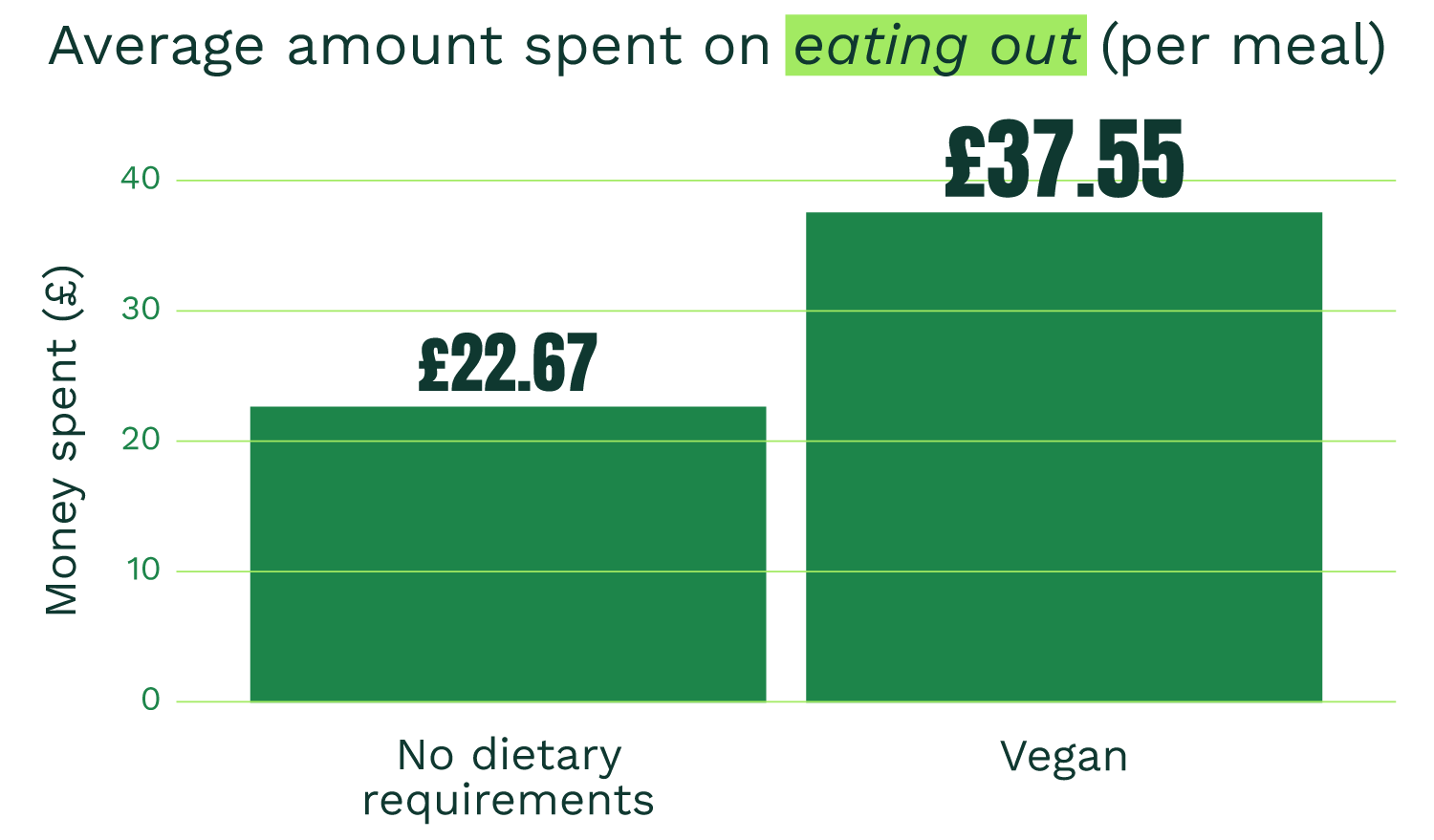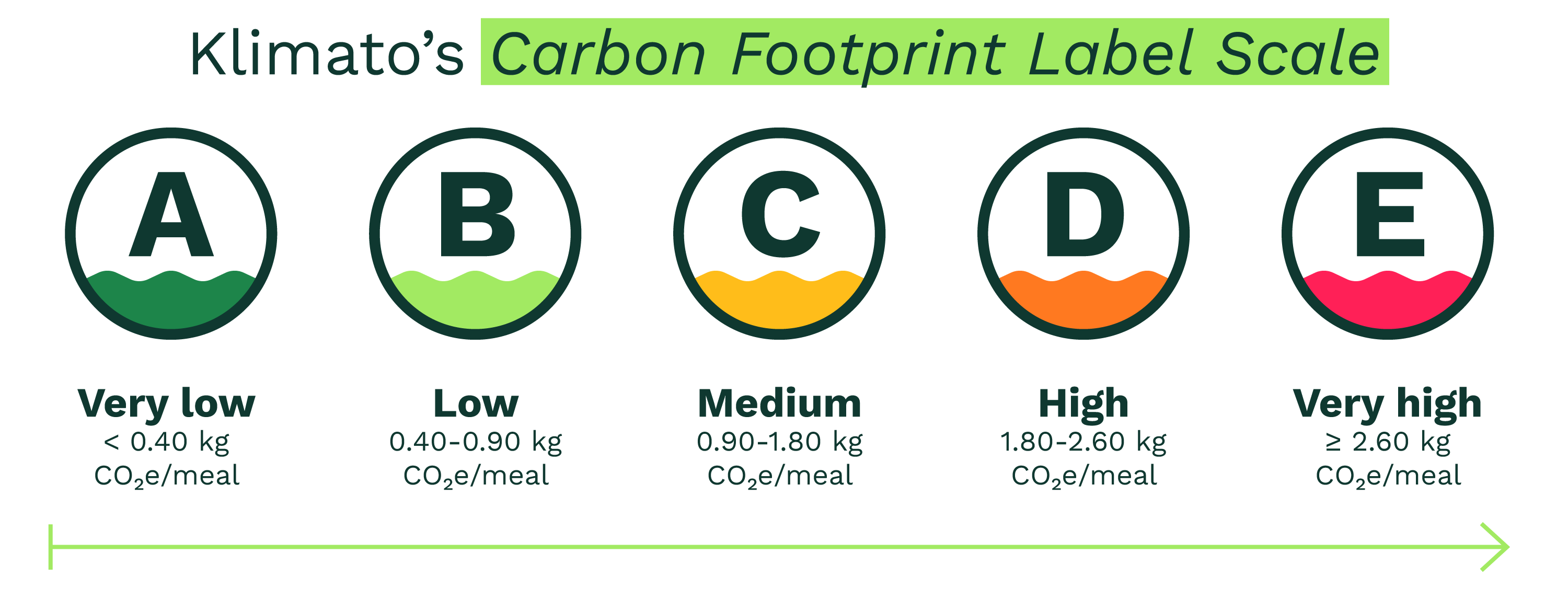How restaurants can turn sustainability into a competitive advantage
We know that it’s tough out there for food businesses. When having to face daily challenges like rising costs, staff shortages, and economic uncertainty, bringing sustainability into the picture can seem like an extra hurdle one can simply not afford. However, in today's rapidly evolving market, sustainability is no longer just a buzzword—it's a business imperative. Embracing eco-conscious practices not only benefits the planet but also enhances profitability, market appeal, and customer loyalty. As sustainable practices remain still underutilized across the industry, being a trailblazer in embracing sustainability as a hospitality business can deliver meaningful value and create a significant competitive advantage. Here’s why ignoring your emissions is a risky strategy, and how sustainable practices can turn the tide in your favor.
Reducing business costs (eco-) consciously
Choosing lower carbon impact and meat-free dishes comes with a host of benefits. First off, they can be significantly cheaper to produce than traditional meals. Plus, they tap into a rapidly growing market and bring a wealth of marketing and branding opportunities.
Swapping out high-carbon ingredients for lower-emission alternatives doesn't just make dishes greener—it can also slash preparation costs. This means businesses can trim expenses while serving up eco-friendly options.
Even though these dishes are cheaper to produce, they are typically sold at similar prices to their higher-carbon counterparts, potentially boosting profit margins. All in all, serving more sustainable food isn't just good for the planet—it's a win for everyone involved: customers, business owners, and the climate.

Elevating sales through a sustainable menu
Sustainable food options are a powerful sales driver in the hospitality industry, as many consumers are increasingly seeking out restaurants that prioritize environmental responsibility.
By showcasing your commitment to sustainability through your menu choices, you can attract this environmentally conscious customer base.
Offering carefully crafted dishes—and including information on their environmental impact—not only elevates your menu, but also aligns your brand with values that resonate deeply with today’s diners.
Numerous Klimato customers have seen a positive impact after using the Klimato tool to track, communicate and reduce, their food-related emissions.
A prime example comes from the Ennismore hotel Hoxton Poblenou, which recently redesigned their menu to climate optimize their food offering with the help of Klimato. Their results show how sustainability is a brilliant strategy for both business and climate impact:
“It's incredible how, with some small adjustments to the recipes, the amount of carbon footprint is reduced, without affecting the final taste and presentation. It is also astonishing how the cost of the dish decreases, allowing us to offer affordable, high-quality products, recipes, and culinary creations.” – Marcos Sierra, Head Chef at Hoxton Poblenou
Tapping into a rapidly growing market
Eating more plant-based meals has significantly grown in popularity over the years.
YouGov’s biannual tracker shows that 14% of the UK population adopt a flexitarian diet, 5% are vegetarian, 3% are pescetarian and 2% are vegan. With a cumulative 24% of potential guests adopting a planet-friendly diet, there is a significant market to tap into.
Along with their commitment to eco-conscious eating, this new generation of customers are the biggest spenders, further emphasizing how vital it is to target this market.
According to a recent survey, vegans in particular will typically pay £37.55 for a restaurant meal, forking out nearly £15 more on average than meat-eaters when they dine out.

Increasing numbers with the power of food carbon labels
Transparency is key in any sustainability strategy. And food carbon labels are a great tool to provide customers with clear information about the environmental impact of their food choices.
By incorporating carbon labels which show a dish’s carbon footprint, hospitality businesses can educate and empower their customers to make informed decisions.
Showing such transparency helps you build trust and reinforces your business’ commitment to sustainability, boosting its overall reputation among customers. Additionally, food carbon labels can set your restaurant apart from competitors, positioning you as a leader in the green dining movement.

According to a recent study, carbon labeling has the power to boost your profit significantly by engaging environmentally-concerned customers, improving customer loyalty, branding value and relationships with customers - which can all contribute to increased profits.
Overall, carbon labels can have a positive impact on your business in multifold ways, becoming your best ally both in terms of marketing and revenue:
- Harnessing the power of carbon labels
- Generate customer loyalty and create brand value
- Push customer behavior towards sustainable choices
- Boost your brand as an employer, increasing staff retention and talent attraction
- Create marketing opportunities leveraging sustainability
- Enhance your carbon reduction strategy
Why Klimato?
In an industry as competitive as food service, sustainability offers a compelling competitive edge.
By reducing emissions and embracing eco-conscious practices, food businesses can lower costs, attract a growing market of environmentally aware consumers, and enhance their brand reputation.
Ignoring these opportunities is not just a missed chance for growth but also a potential risk, as consumers and regulators increasingly prioritize sustainability.
At Klimato, we're here to help you navigate this journey, offering the tools and expertise you need to turn sustainability into your competitive advantage.